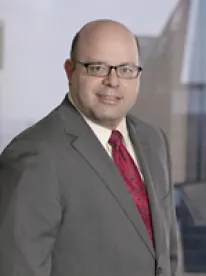On September 12, 2013, the U.S. Court of Appeals for the Second Circuit (the Second Circuit) affirmed the rulings of the U.S. Bankruptcy Court for the Southern District of New York (the Bankruptcy Court) in the bankruptcy cases of American Airlines and related debtors (the Debtors) holding that the Debtors do not have to pay a make-whole premium when repaying certain of their outstanding financings (the Indentures). A complete analysis of the background surrounding the case and the Bankruptcy Court’s ruling can be found at www.vedderprice.com/Make-Whole.
While the Second Circuit's opinion that make-whole was not payable under the Indentures in context of debt acceleration is not surprising (under the Indentures, make-whole was not payable upon acceleration, and a bankruptcy filing resulted in automatic acceleration), the Second Circuit's ruling that the indenture trustees under each Indenture (the Indenture Trustees) could not de-accelerate the related debt amplifies the Bankruptcy Court's analysis creating potential limitations on creditors' rights under section 1110 (Section 1110) of the U.S. Bankruptcy Code, 11 U.S.C. §§ 101 et seq. (the Bankruptcy Code).
In its opinion, the Second Circuit ruled that the post-petition exercise of a contractual right to de-accelerate would be a violation of the automatic stay under section 362 of the Bankruptcy Code, stating:
As of the [petition date], American had the contractual right, pursuant to the Indentures, to repay its accelerated debt without Make-Whole Amount. We therefore agree with the bankruptcy court that any attempt by U.S. Bank to rescind acceleration now—after the automatic stay has taken effect—is an effort to affect American’s contract rights, and thus the property of the estate. (Emphasis added.)
The Second Circuit reasoned that the contract rights between a debtor and a creditor are fixed on the petition date, and any effort by a creditor to change such rights after the petition date, including by de-accelerating the debt, constitutes a violation of the automatic stay that is statutorily enjoined by section 362 of the Bankruptcy Code. The ruling, which was made without any analysis of the impact of Section 1110, fails to recognize the special protections that Section 1110 affords aircraft financiers. Rather than freezing contractual rights as of the petition date, Congress specifically required that a chapter 11 debtor air-carrier comply with all contractual terms (and cure any defaults) of an aircraft financing following a Section 1110(a) election, with the only exceptions being contractual terms that are triggered by the bankruptcy or financial condition of a debtor or that constitute a penalty. A chapter 11 debtor’s failure to honor any such contractual term would normally create a default, allowing a Section 1110(a) protected aircraft financier to exercise its remedies against the aircraft equipment.
Here, the Indenture Trustees possessed contractual rights to de-accelerate that should have been exercisable at any time after the Debtors made their Section 1110(a) elections. Because the Second Circuit focused upon the Debtors' contractual rights as of the petition date, instead of the Section 1110(a) contract rights that are protected on an ongoing basis, the Second Circuit's analysis is faulty. In fact, a deceleration of the debt does not "change" the contractual rights between the parties as posited by the Second Circuit—such rights are expressly fixed by the terms of the Indentures, which the Debtors agreed to comply with in making a Section 1110(a) election.
Although the Second Circuit's ruling deals only with the ability of Section 1110 protected creditors to decelerate debt to protect make-whole claims, the Second Circuit's analysis could be applied to limit the exercise of any affirmative contractual right as violating the automatic stay (e.g., inspection and insurance rights, which are oftentimes exercised post-petition). This creates a potential material limitation upon the scope of Section 1110 protections that aircraft financiers currently take for granted—a limitation that is now afforded the precedential value of a Second Circuit ruling.



 />i
/>i
